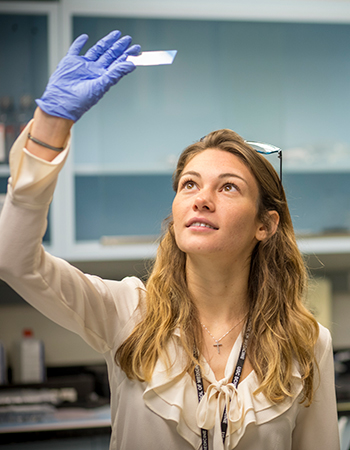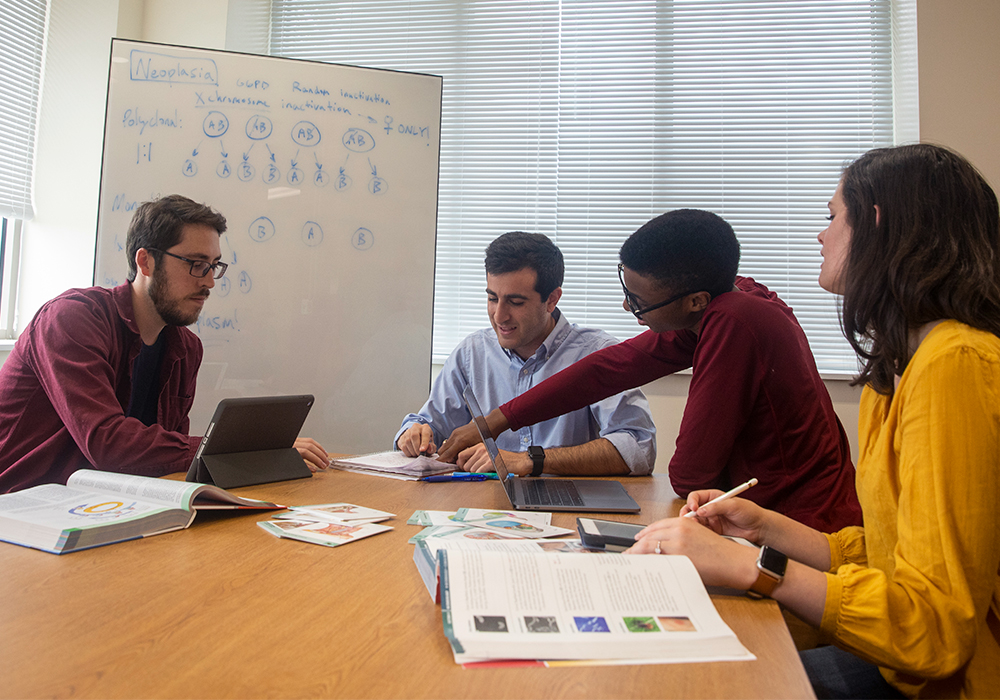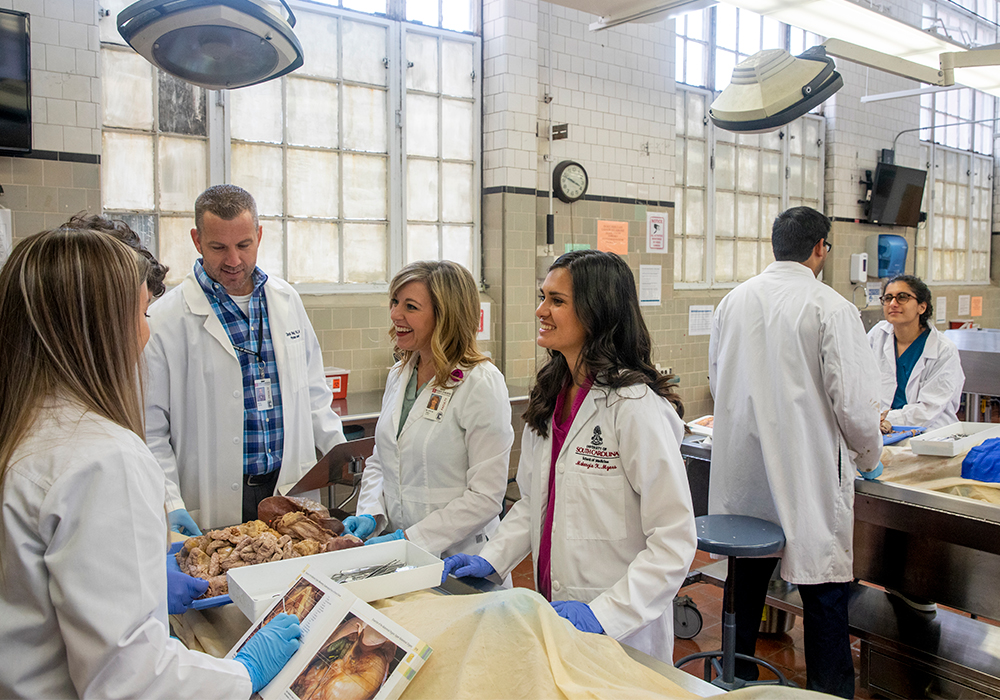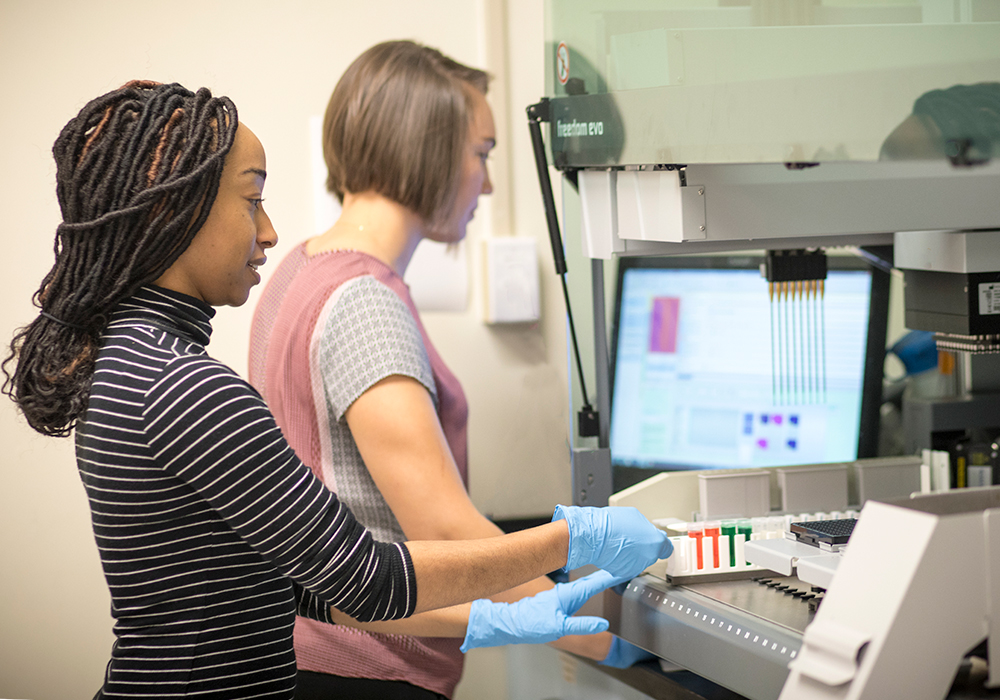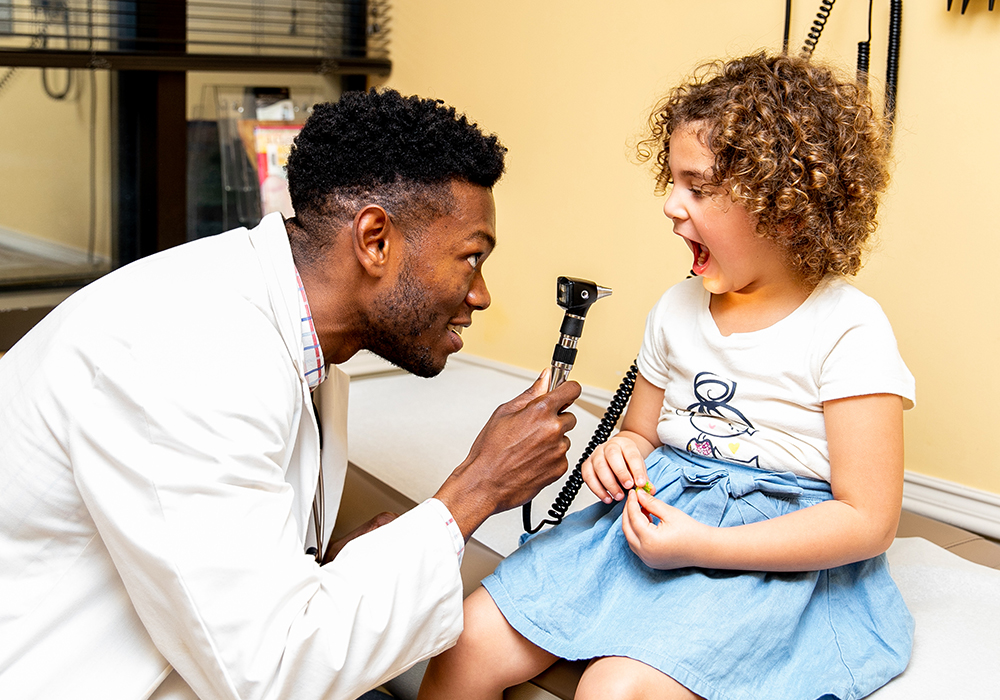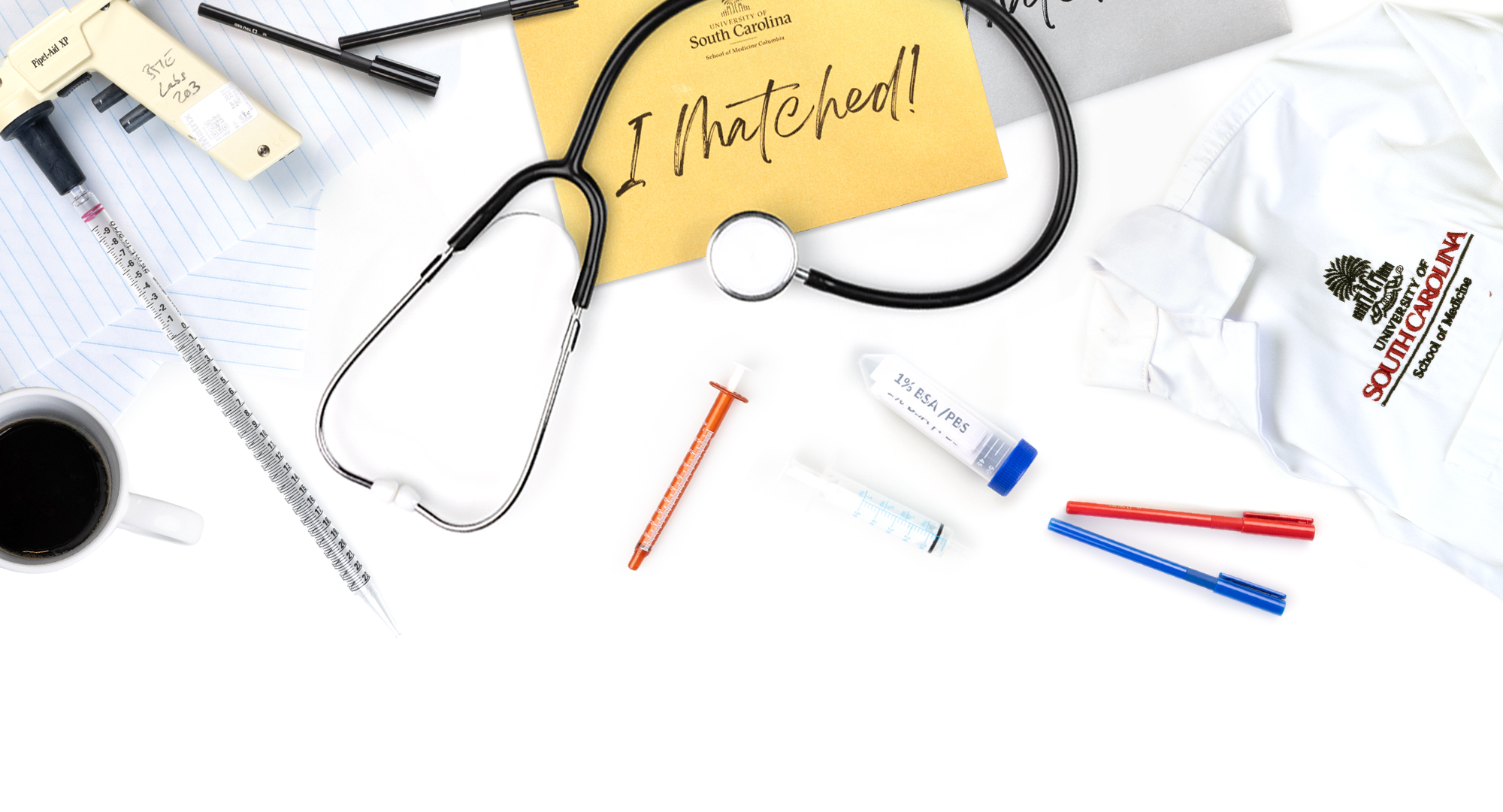
School of Medicine ColumbiaAt a Glance
The University of South Carolina School of Medicine Columbia is training future generations of physicians, health care professionals and scientists while supporting the growing health needs of South Carolinians.
Educational programs at the School of Medicine Columbia take full advantage of the University of South Carolina’s status as the state’s only Tier 1 research university. Students receive a leading-edge, exemplary medical education from a school where interdisciplinary research and quality patient care initiatives transform medicine in real time.
-

State of Well-Being
From obstetricians and nurses to social workers and psychiatrists, University of South Carolina graduates are especially needed in rural areas, where more than a quarter of the state’s residents live. And the impact isn’t only felt by the patient; it’s also felt by the communities themselves. Carolinian visited several alumni whose small-town efforts are having a big impact. These proud health care workers showed us the meaning of dedication and their commitment to the people and communities they serve.
-

SC impact: Pell Grant recipients thrive in a wide range of fields
For more than 50 years, USC has made an undergraduate education more attainable through TRIO programs. The foundation of these opportunities is the Pell Grant. Here, USC alumni share how the Pell Grant opened the door for them to achieve their dreams of earning their degrees and attaining fulfilling, impactful careers.
-

New USC clinic tackles mental health provider shortage in rural South Carolina
The University of South Carolina School of Medicine Columbia is opening a free mental health clinic to serve rural communities in Bamberg, Calhoun, Fairfield, Orangeburg and Chester counties. Launching this summer, the student-operated, faculty-supervised clinic will offer in-person and telehealth services to those with limited access to care.
-

2025 Autism Acceptance Month: USC faculty experts list
April is Autism Acceptance Month. The CDC estimates that one out of every 36 eight-year-olds and one in 45 adults is affected by autism, a lifelong developmental disorder. As South Carolina’s leader in health sciences, USC has researchers across disciplines who specialize in autism.

Leaders in Ultrasound Education
In 2006, the University of South Carolina's School of Medicine Columbia became the first in the nation to integrate ultrasound technology throughout a four-year medical curriculum. Ultrasound education provides students with a beneficial career advantage as it further enhances the quality of care patients receive.
Integrated Ultrasound